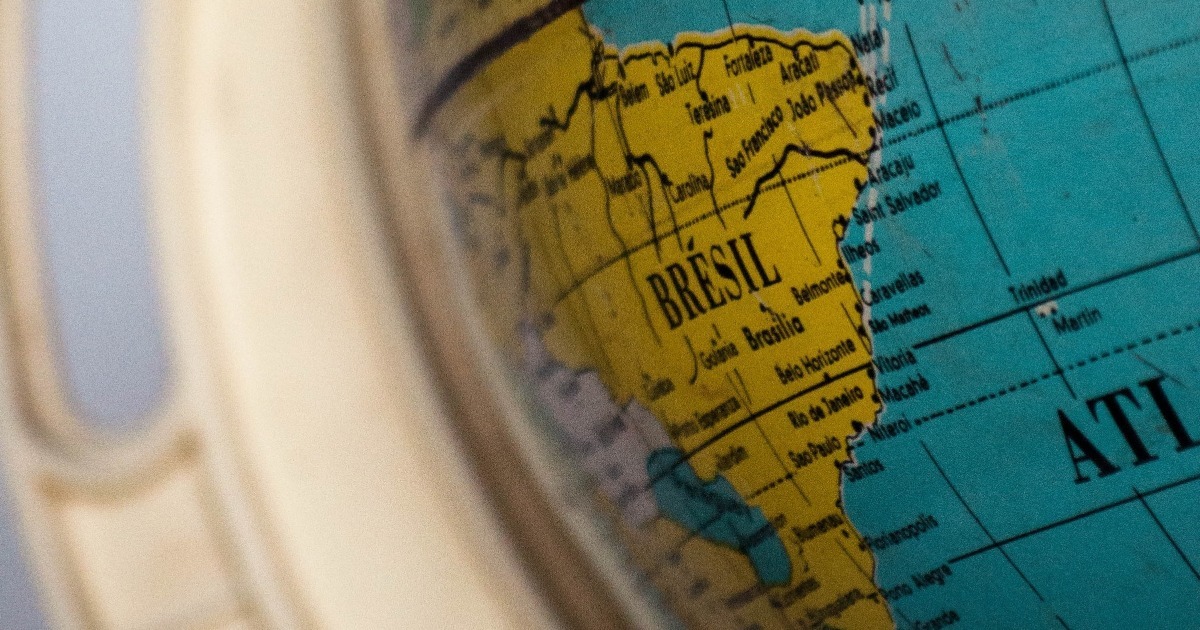Globalization is entering a new chapter, and Brazil can become one of the greatest beneficiaries of this process if it expands the current trend of competitive insertion in the markets.
The opinion is shared by Marcos Troyjo, president of the New Development Bank (NDB), and José Augusto de Castro, president of the Brazilian Foreign Trade Association (AEB).
Troyjo believes that Brazil is already taking advantage of the new international trade phase but can still improve.

He recalls that for a long time, since the 1980s, the country oscillated with a trade flow (the sum of exports and imports) representing something between 18% and 25% of GDP.
However, this ratio jumped to 39% in 2021 and is slightly below this year.
Castro says he considers a level of 30% of the GDP acceptable for a country with a robust internal market.
He says that nations like Chile, which have a more outward-looking economy, are at a higher level of up to 50%.
And this is not only because of higher values, advantageous exchange rate variations, or inflated commodity prices but because of a consistent exploration work of new markets, especially in Asia.
The president of the NDB recalls that Brazil exported US$1 billion to China in the year 2000.
Today, it reaches the same amount every 60 hours. And there are other expanding markets.
“Today, we sell more to Malaysia than to England, Scotland, and Wales combined,” he compares.
EMERGING MARKETS ADVANCE
The change, according to Troyjo, contemplates an entirely different configuration of the global economy in recent decades.
To compare, he cites that when adding up the GDP measured by the purchasing power parity of the G7 (USA, Japan, Germany, France, UK, Italy, and Canada), the total today reaches around US$49 trillion.
At the same time, the sum of the GDP of the seven largest emerging economies in the world (China, India, Russia, Brazil, Indonesia, Mexico, and Turkey), which he calls the E7, already reaches US$60 trillion.
For Troyjo, the visions regarding a “de-globalization” are mistaken because what is happening is a new phase in the evolution of the macro-environment of commercial relations.
One such stage began with the fall of the Berlin Wall in 1989, the end of the Cold War, and the view that Western democracies and open economies prevailed.
Then there was another stage, with negotiations for forming large trading blocs, such as the European Union, Mercosur, and Nafta. And new changes came with the subprime crisis and that of the Mediterranean economies in Europe.
According to the NDB president, although there are “deglobalizing phenomena,” such as Brexit, what has happened is more of a slowdown than a setback.
FOOD SECURITY
What arises now is another opportunity that Brazil has no right to waste, according to Troyjo: the international awakening to the issue of food security.
“If Brazil knows how to ‘read the tea leaves’, it will be able to adapt well to the changes,” he says.
He remembers that in the IMF meetings held in Washington recently, this was the main theme, as opposed to discussions in previous years that focused on the evolution of the GDP.
He defends that Brazil must pay attention to the population growth of Asian countries, as well as the per capita income of these nations.
In India, for example, the population’s income has more than doubled in recent years to about US$6,000.
He explains that people in countries with this degree of economic development expand their food intake, nutrients, and calories.
“The future in terms of commodities is all here,” agrees Castro at AEB.
Troyjo sees a big differentiator for Brazil: its rich water table, which leaves the country strategically better positioned to continue feeding the world in the future with an increasingly green, ‘smart’ and technological agriculture.
“There is more technology in a soybean in Brazil than in a bolt, which may be benefiting from protectionist measures.”
MERCOSUR-EU AGREEMENT
But of course, some “homework” will need to be done. Castro cites tax and administrative reforms as essential for taking advantage of the full potential in terms of productivity.
This could contribute to the Mercosur-EU agreement finally getting off the drawing board, says Castro, reminding that the current tax burden leaves the country vulnerable and uncompetitive in terms of prices in several products and sectors.
“At the moment, this agreement is more important politically than economically,” says the president of AEB.
Castro points out that manufactured goods represented 59% of the total at the beginning of the 2000s and that today it is around 28%.
Troyjo, who helped design and participated in the negotiations about the agreement, considers that the risks are not so great because the liberalization for certain sectors is progressive.
“The great benefit is that agreements of this type allow for large flows,” he says.
These themes will be discussed at the 41st National Foreign Trade Meeting (Enaex), promoted by the Brazilian Foreign Trade Association (AEB), on November 17 and 18.
Troyjo will be one of the guests.
With information from InfoMoney

